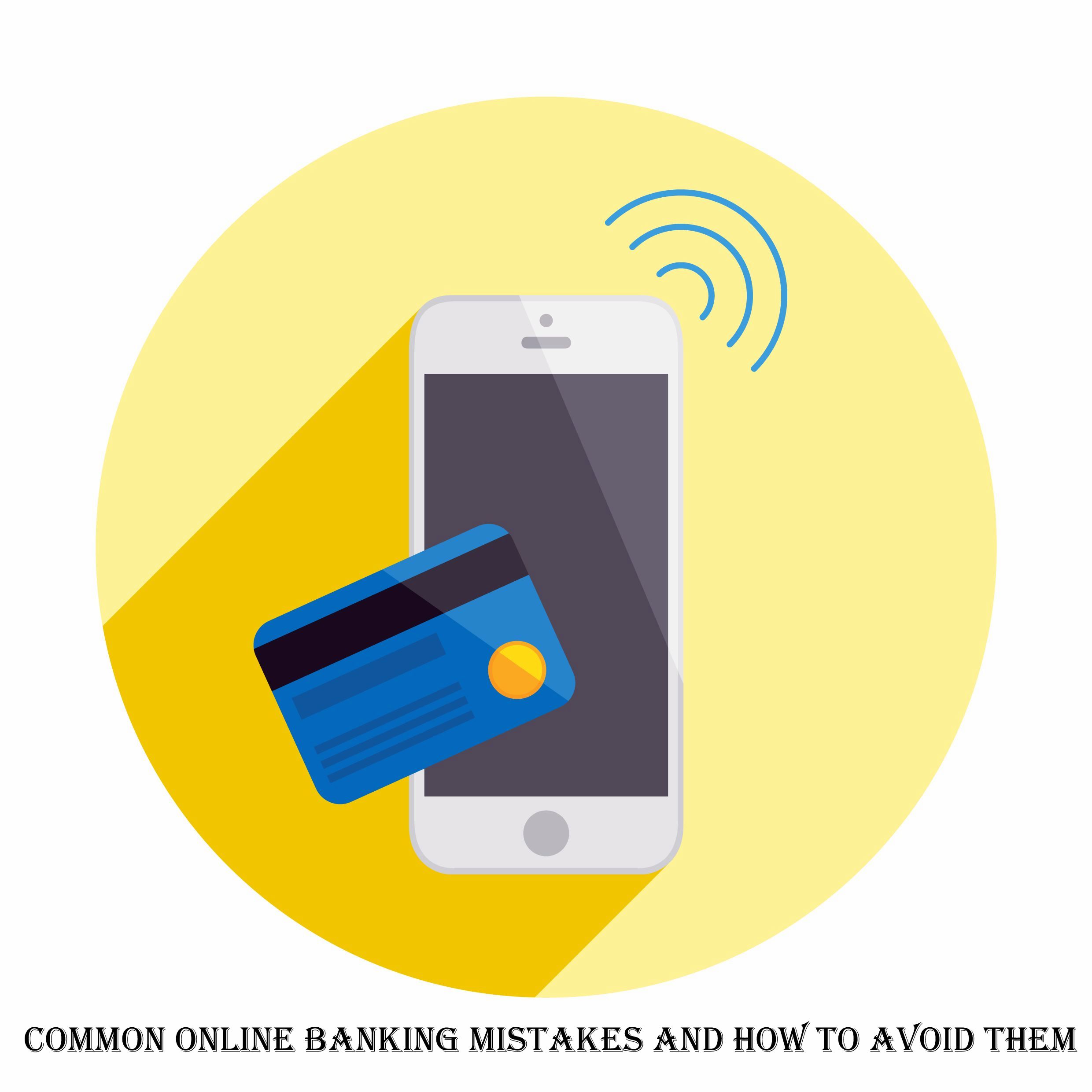Common Online Banking Mistakes and How to Avoid Them: Avoid common online banking mistakes to protect your financial information. Use strong passwords, enable two-factor authentication, and beware of phishing scams. Always log out properly, avoid public Wi-Fi for banking, and regularly update your software and apps for enhanced security.
Common Online Banking Mistakes and How to Avoid Them

Common Online Banking Mistakes and How to Avoid Them
Online banking has transformed the way we manage our finances, offering convenience and accessibility like never before. However, with the increasing reliance on digital platforms, it’s essential to be aware of common online banking mistakes that can compromise security and financial well-being.
This article highlights some of the most frequent online banking errors and provides tips on how to avoid them, ensuring a safe and seamless online banking experience.
1. Weak Passwords:
One of the most common online banking mistakes is using weak passwords. Many individuals opt for easy-to-remember passwords that are also easy for cybercriminals to guess. Avoid using common passwords like “123456” or “password” and instead create strong passwords with a combination of uppercase and lowercase letters, numbers, and special characters. Use unique passwords for each online account to prevent potential breaches.
2. Ignoring Two-Factor Authentication (2FA):
Two-factor authentication (2FA) adds an extra layer of security to your online banking account. It requires users to provide a second form of verification, such as a one-time password (OTP) sent to their mobile phone, in addition to their password. Ignoring 2FA leaves your account more vulnerable to unauthorized access. Always enable 2FA whenever it is offered by your online banking provider.
3. Falling for Phishing Scams:
Phishing scams are deceptive attempts by cybercriminals to trick individuals into revealing sensitive information, such as login credentials or credit card details. Be cautious of unsolicited emails, text messages, or phone calls asking for personal information or directing you to click on suspicious links. Always verify the authenticity of the sender before responding or providing any information.
4. Using Public Wi-Fi for Banking Transactions:
Using public Wi-Fi networks for online banking is risky because these networks are often unsecured, making it easier for hackers to intercept data. Avoid logging into your online banking account or performing financial transactions while connected to public Wi-Fi. Instead, use a secure and private internet connection, such as your home Wi-Fi or cellular data network.
5. Neglecting to Update Software and Apps:
Failure to update your devices, software, and banking apps can expose vulnerabilities that hackers can exploit. Regularly update your operating system, antivirus software, and mobile banking apps to ensure they have the latest security patches and features. Updated software provides better protection against potential threats.
6. Saving Banking Credentials on Public Devices:
Saving your online banking credentials on public computers or shared devices is risky. Always log out of your account after each session and avoid selecting the option to save login information on public devices. Additionally, consider using private browsing mode when accessing your online banking account on shared computers.
7. Disregarding Account Activity and Notifications:
Regularly monitor your online banking account for any unusual activity or unauthorized transactions. Many banks offer account activity notifications via email or mobile alerts. Stay vigilant and report any suspicious activity to your bank immediately.
8. Overlooking Account Statements:
Reviewing your monthly bank statements is crucial for detecting errors or fraudulent transactions. Thoroughly review all transactions and verify that they are legitimate. If you notice any discrepancies, notify your bank promptly.
9. Falling for Overpayment Scams:
Be cautious when selling items online or receiving unexpected checks. Scammers may send fraudulent checks, claiming overpayment and requesting a refund of the excess amount. Before refunding any money, ensure the check clears and verify the legitimacy of the transaction.
10. Not Logging Out Properly:
Always log out of your online banking account properly when you have finished your session. Simply closing the browser may not be enough to ensure you are logged out securely. Take the extra step to log out explicitly to minimize the risk of unauthorized access to your account.
Conclusion:
By being aware of common online banking mistakes and following best practices for security, you can enjoy a safe and seamless online banking experience. Use strong and unique passwords, enable two-factor authentication, and avoid public Wi-Fi for banking transactions. Stay vigilant against phishing scams, regularly update your devices and apps, and monitor your account for any suspicious activity. Taking these precautions will help protect your financial information and ensure that online banking remains a convenient and secure tool for managing your finances.
